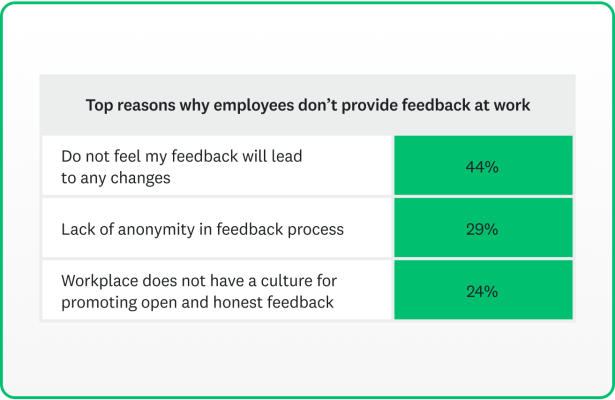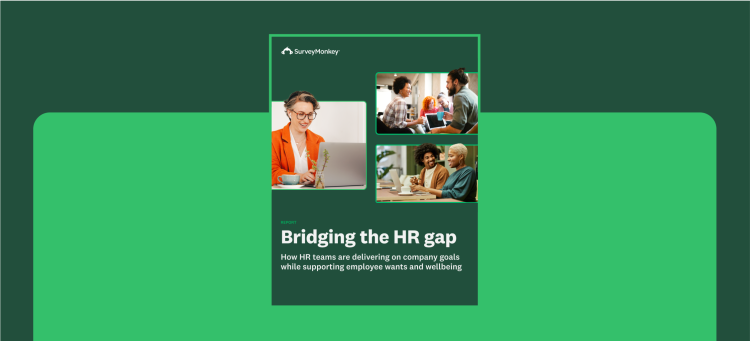There’s a lot of interest around what’s happening in the workplace and how can HR can get in front of workforce trends. While it’s important to look ahead, the fact is staying on the cutting edge of HR trends is really about understanding your employees today.
That’s why we’re sharing our recent research about what employees care about. In two separate studies of HR trends and the employee experience, we uncovered how employees feel about the most important aspects of work—what they value, how they work most effectively, how they feel about the support they receive from HR and company leadership.
The good news is that today’s employees are an optimistic, motivated group. The challenge is, they are inclined to be distracted by what’s going on in the world, every day pressures, and the changing nature of the workplace. And rightfully so. Here’s a peek at what employees feel about the workplace and their future of work.
Employee concerns extend beyond the workplace
The world is a volatile place right now, and employees are impacted by what’s happening around them. From global conflicts, to extreme climate events, and economic pressures, it’s easy for the headlines to command both attention and energy of workers.
According to our recent study, 74% of Americans say they are interested in national politics—and the issues at stake this year have a big impact on every day life. From decisions about abortion, healthcare, protecting the environment, gun laws, immigration—people have many conflicting opinions and points of view.

Those opinions have a tendency to come to work with them. Almost half (45%) of workers say there are more conflicts related to political and social identities in the workplace today than five years ago. And 42% say the workplace is more stressful now than it was five years ago.
We asked workers about their concerns, and financial security topped the list. Over a third are concerned about jobs and the economy. Healthcare, immigration and the environment were all top of mind as well.
These are more than just distractions; many of these issues impact employees on an individual basis. Depending on the make up of a given workforce—from demographics to geographical location and ethnicity—these issues might create the need for additional support services.
Do companies value employees as much as employees value their jobs?
Pressures aside, work is important and people care about their jobs. In our HR trends study, 78% of employees say their job gives meaning to their lives. Over three quarters (76%) of employees like their current jobs, and 57% are highly motivated and go the extra mile for their work.
And in possibly the ultimate endorsement, over half (53%) of employees say they would not quit their jobs if they won the lottery.
But what’s less clear is whether employees believe they are valued by HR and their employers. In our study on HR trends, 63% of employees said HR did more to advocate for the company than employees. Over a third (35%) of employees say their leadership doesn’t understand employee needs.
In addition, employees don’t feel like they have a voice in what they experience every day. In our study, 78% of employees say their experience is determined by leadership or by management, not employees themselves.
How companies can have a positive impact on the employee experience
A motivated but disenfranchised workforce could signal a problem—or an opportunity. Companies who recognize the disconnect can make strides by closing the gap between what employees want and what HR is trying to accomplish.
First up: consider the whole employee. In our study, over half (53%) of employees believe companies should focus on their wellbeing and 48% said they should focus on retaining talent. Benefits and compensation are also important as is learning and development programs.
The workplace itself has evolved and employees have strong opinions on what’s working and what’s not. According to our research, topping the list of pet peeves are being micromanaged (39%) and office drama (36%).
Clear boundaries between work and time off is also important. Almost a quarter of employees (28%) say they are asked to do work when on vacation, and 54% say they check their work email when taking vacation time off.
Almost a third (31%) have taken a sick day for mental health, highlighting the need for employees to take time to mentally recharge. Conversely, according to workers, only 9% of employers provide mental health days as an option.
Feedback is key to better employee engagement
The list of what’s working and what’s not is going to vary for each organization. That’s why its critical that employees are able to provide feedback in a way that’s honest and open.
However, that’s not always the case. In our study, 36% of employees say that their workplace does not foster an environment of open and honest feedback. Almost four out of ten (39%) of workers say they don't feel comfortable offering feedback to HR at their workplace. The reasons are varied, but the bottom line is that they don’t think their feedback will matter.

We looked specifically how employees felt about HR at companies that promoted feedback and compared that to companies that don’t promote open feedback. We found that workers in these supportive companies are more than twice as likely to feel HR is effective, compared to employees at companies that inhibit feedback.

Key takeaways
Understanding HR trends comes from within. You already have what you need to energize and engage your workforce. The most successful companies and HR teams are not looking to jump on what’s happening outside, but rather are focused on understanding their employees so they can meet them where they are.
For more on these insights, check out our report on the HR gap and research on 2024 workplace trends.
Methodology
SurveyMonkey “2024 Workplace trends” study was conducted August 5-14, 2024 among a sample of 3,117 full-time workers in the US. Respondents were selected from a non-probability online panel. The modeled error estimate for these surveys is plus or minus 1.0 percentage point. Data has been weighted for age, race, sex, education, and geography using the Census Bureau’s American Community Survey to reflect the overall demographic composition of the United States.
SurveyMonkey HR research study was conducted on July 12, 2024 among a sample of 304 HR professionals. An additional SurveyMonkey study of 2,593 U.S. workers 18+ was conducted July 12-16, 2024. Respondents for both HR professionals and employees were selected from an online non-probability panel.



